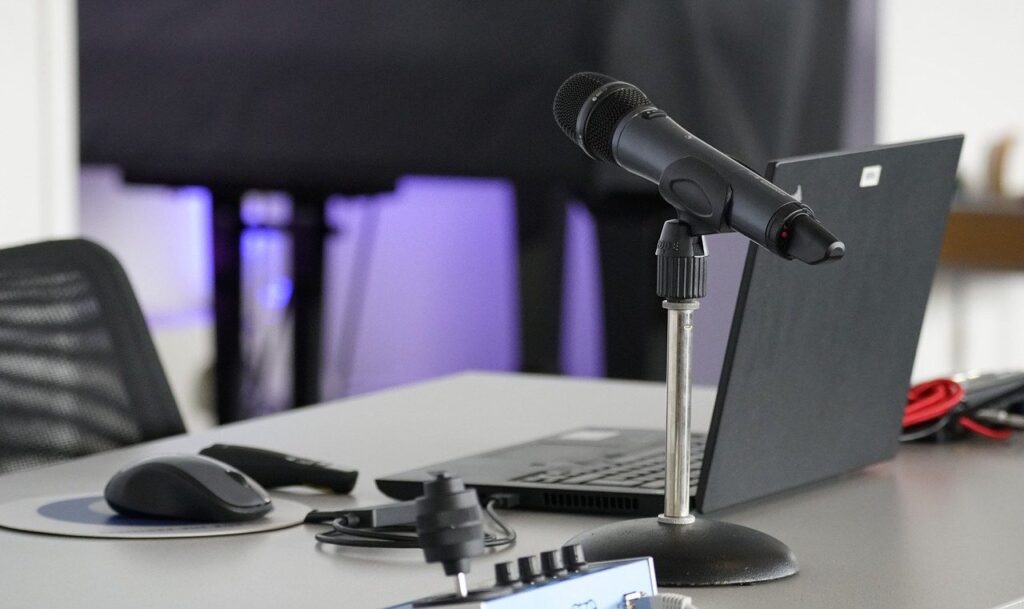
Learn how to start a podcast and pair it with a content-rich blog to boost SEO and maximize Google AdSense earnings. Tips, tools, and monetization strategies inside.
Podcasting Plus a Website is a Winning Combo
In a world where audio content is booming, podcasting is one of the most powerful ways to build an audience, share your voice, and even generate income online. But what many podcasters overlook is the importance of pairing their audio content with a well-optimized website or blog.
If you’re planning to monetize through Google AdSense, having a podcast-only presence won’t cut it. You’ll need a blog or website to boost discoverability, enhance SEO, and open up new revenue channels.
Let’s walk through a step-by-step strategy to launch your podcast with an accompanying website that is both SEO-friendly and AdSense-compliant.
Understanding Google AdSense & Podcast Content
Before diving into technical tips, it’s important to understand how Google AdSense works.
Google AdSense allows publishers (like you) to earn money by placing relevant ads on your blog or website. However, it only works on websites with valuable, original content — not on platforms like Spotify or Apple Podcasts alone.
By embedding your podcast into a blog and pairing it with transcripts, show notes, and supporting articles, you not only give users more value, but also make your content indexable by search engines — which is crucial for AdSense monetization.
🔒 AdSense Compliance Tip: Avoid adult themes, misleading claims, copyright violations, or violent content. Keep your tone educational, inspirational, or entertaining in a brand-safe way.

Pick a Podcast Niche That Aligns with AdSense Standards
Not all podcast niches are AdSense-friendly. Topics like adult content, firearms, hate speech, or speculative finance can violate Google’s publisher policies.
Here are safe and profitable podcast niches:
- Self-improvement
- Business & marketing
- Personal finance
- Parenting
- Health & wellness (without medical claims)
- Technology
- Language learning
- Remote work & freelancing
🎯 Choose a niche you can talk about consistently while providing original value to your audience.
Set Up a Website or Blog for Your Podcast
To be AdSense-ready, your site should be:
- Easy to navigate
- Mobile responsive
- Fast loading
- Secure (use HTTPS)
You can use platforms like:
- WordPress.org (best for control and AdSense customization)
- Squarespace (easy but less AdSense flexibility)
- Podpage (designed for podcasters but may need blog extensions)
Essential website pages for AdSense approval:
- Home
- Blog/Podcast
- About
- Contact
- Privacy Policy
- Terms & Conditions
✅ Google requires these pages for trustworthiness and to qualify for AdSense approval.
Turn Each Podcast Episode into a Blog Post
Each episode is a goldmine of content. Don’t just upload an audio file and call it a day. Instead, create a blog post with:
- Episode summary (150–300 words)
- Embedded podcast player
- Full transcript (can be auto-generated and lightly edited)
- Relevant internal/external links
- AdSense ad units (placed between content sections)
This gives Google’s crawlers something to read and rank — which an audio file alone cannot do.
🧠 Pro Tip: Use tools like Otter.ai, Descript, or Castmagic to transcribe audio automatically.
Optimize for SEO to Increase Traffic (and AdSense Revenue)
If you want more organic traffic — which equals more AdSense impressions — your blog content must be optimized.
On-page SEO Tips:
- Use your episode’s main topic as the blog post title.
- Include your focus keyphrase in the title, meta description, URL, and headers.
- Add internal links to other episodes or blog posts.
- Use schema markup (podcast and article schema) for better rich results.
Example Keyphrase: “How to Start a Freelance Career”
Example Title: “Episode 12: How to Start a Freelance Career Without Experience”

Embed Google AdSense Smartly
Once your blog has at least 15–30 pieces of original content, you can apply for AdSense.
When placing ads:
- Use in-content ads (between transcript paragraphs)
- Place display ads in the sidebar
- Avoid placing ads too close to clickable links or images
- Do not overload with ads – maintain good user experience
🧩 Match your blog layout with Google’s ad best practices. Less clutter = better performance + policy compliance.
Monetization Beyond AdSense (Without Violating Policies)
While AdSense is a great start, your podcast blog can be monetized further:
- Affiliate links (with disclosure)
- Sponsored content (transparent & labeled)
- Digital product sales (e.g., eBooks, checklists)
- Newsletter ads (via platforms like ConvertKit or Substack)
Always ensure all monetization methods adhere to Google’s content monetization guidelines, especially in terms of transparency and user trust.
Build an Email List from Your Website
Your blog should include email opt-in forms to capture subscribers. Not only does this help build loyalty, but it creates a repeat audience, increasing AdSense ad views over time.
Tools to use:
- MailerLite
- ConvertKit
- Beehiiv
- Mailchimp
Offer a freebie like “Top 10 Podcast Episodes” or a “Quick Start Guide” to incentivize sign-ups.
Promote Your Podcast Blog for Maximum Reach
It’s not just about creating — it’s about distribution. Promote your podcast blog through:
- Social media (Facebook, LinkedIn, Instagram Reels)
- Podcast directories (Spotify, Apple, Stitcher)
- Reddit and niche forums
- Pinterest (for blog post visuals)
- Guest podcasting or guest blogging
The more visitors you bring to your site, the more page views = more AdSense revenue.
Track Performance with Analytics
Use these tools to understand your audience and optimize your content:
- Google Analytics (monitor traffic)
- Google Search Console (see ranking keywords)
- AdSense Reports (track earnings by page)
Refine your strategy by focusing on high-performing episodes and blog topics.
Make Your Podcast Work Harder with a Blog
Podcasting is no longer just about putting your voice out there — it’s a full-scale content ecosystem. When you add a SEO-optimized website with high-quality content, you’re building an asset that:
- Reaches new audiences through Google
- Increases monetization potential via AdSense
- Enhances your brand authority and visibility
It’s the perfect combination of content marketing + audio storytelling + passive income.
So if you’re serious about podcasting as a long-term platform — don’t skip the website. Start building it today, embed your episodes, write blog posts, apply for AdSense, and watch your online presence (and revenue) grow. Read More>>>>